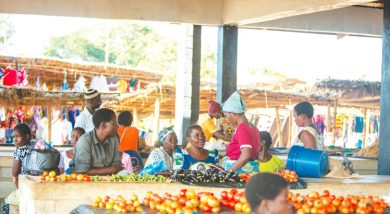MRA reverses ‘kaunjika’ tax
Malawi Revenue Authority (MRA) yesterday backtracked on the decision to increase duty on imported second hand clothes following a vendors and importers protest march in Lilongwe.
The decision also came as traders of second hand clothes, locally known as kaunjika, planned similar protest marches in Blantyre this Friday.
During the march in Lilongwe, the traders delivered a petition to MRA protesting the increase in duty on kaunjika imports from $1.90 (about K3 230) to $2.50 (about K4 250) per kilogramme as indicated in the proposed K5.9 trillion 2024/25 National Budget that Minister of Finance and Economic Affairs Simplex Chithyola Banda presented in Parliament on February 23.
While the vendors marched in Lilongwe and their colleagues strategised in Blantyre, the public tax collector issued a memo signed by MRA commissioner general John Biziwick that the new duty was withdrawn with immediate effect and should be complied with by all MRA officials.

Reads the memo in part: “Management wishes to advise all station managers and staff that with immediate effect, TD Circular No.007/2024 has been withdrawn.
“The value for duty purposes for used clothes remains at CIF USD1.90 per kg as per TD Circular No.003/2023.
“All station managers and staff should ensure that the contents of this circular are read, understood and complied with.”
However, the vendors proceeded with the protest purportedly to confirm that MRA had withdrawn the hike in value of duty.
Hundreds of vendors left their business spaces to join the peaceful march from Lilongwe Old Town to MRA offices along the Lilongwe-Mchinji Road.
They presented their petition to MRA deputy commissioner for Lilongwe Port Khumbo Gondwe.
In the petition, they said their businesses have been affected by the rise in price of second hand clothes bales.
One of the vendors’ chairpersons Steve Magombo said government was being insensitive to increase tax at a time their businesses are affected by the country’s economic challenges.
He said: “We are tempted to believe that government is trying to kill our business. But government should know that thousands of Malawians are surviving on this business.”
But Gondwe informed the vendors that government had already reversed the decision to increase the second hand clothes tax.
He said importers of second hand clothes had also complained of the increase in tax and MRA moved to reverse the decision.
Said Gondwe: “The implementation is with immediate effect. It means it has already started taking place.
“This issue has been quickly resolved because MRA listened to views of importers and traders. That is why the values have been revised.”
But another chairperson of the vendors, Lyson Chinunga, said MRA should monitor prices that wholesalers are charging and ensure that the reversal reflects on the prices of bales.
In Blantyre, the kaunjika vendors met in Limbe yesterday where they agreed to present the petition to MRA headquarters and the district commissioner’s office on Friday.
During the meeting, Blantyre Kaunjika Vendors chairperson Samuel Mponda described the decision as a deliberate move to phase out the business.
He said: “This tax only makes us believe government is not interested to protect the locals at a time foreign businesses are thriving.”
Mponda said the new duty rates almost doubled the prices of used clothes as they now range from K300 000 to K700 000 per bale.
The Blantyre vendors maintained that they will deliver their petition on Friday despite the new twist.
Meanwhile, Consumers Association of Malawi executive director John Kapito has faulted authorities for not consulting the business community before introducing the new tax.
He said such unplanned policy reversals show that planners are detached from realities and the consequences are that government will lose out on revenues it had planned.
Last year, authorities also stepped on raw nerves when they introduced fixed duty on used imported cars. The decision was, however, reviewed after protests from stakeholders.






Have any favorite blog posts or writers? Share them with us in the comments!